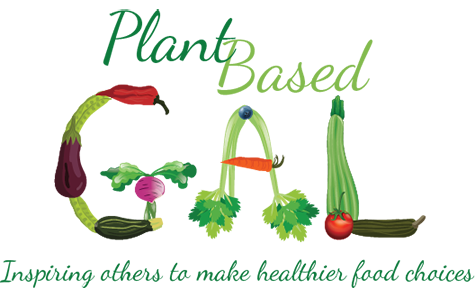But…….where do you get your protein??? That is the first thing most people ask me when I tell them I eat a plant-based diet. Since I have been asked that question a whole bunch of times by now, I usually just grin and chuckle a little before giving them an answer. People are often surprised to find out that you don’t have to eat meat or chicken or fish to get plenty of protein! Sometimes (when I’m feeling ornery), I tell them that, “I get my protein the same way your protein gets its protein”. 😊 And it is true! The list of herbivore mammals is long! https://www.nationalgeographic.org/encyclopedia/herbivore/

WHY DO PEOPLE ASK THE PROTEIN QUESTION?
Because the food industry, fitness-crazed folks and fad diets have drilled into our heads that we are not getting enough protein and we must eat meat or other animal products to get it. Guess what? Neither of those things are true. There is protein in all foods – even lettuce! (see chart below) While the amount of protein people need varies, it’s most likely less than you might think.
![]()
WHAT IS PROTEIN?
Protein is a substance essential to your body. It is made up of amino acids and is required for one to have healthy bones, muscles, skin, hair, organs, hormones and all cells. It also helps your body build new tissue and keeps your immune system strong. Fortunately, by eating a wide variety of plant foods, you can get all the protein you need!
![]()
HOW MUCH PROTEIN DOES A PERSON REALLY NEED?
To determine how much protein your body needs each day, you can use this calculation:
Your body weight (in pounds) multiplied by 0.36 = the number of protein grams needed
OR
Your body weight (in kilograms) multiplied by 0.8 = the number of protein grams needed
The average is 56 grams per day for a sedentary person. If you are more active, you will need more protein.
It is recommended that your protein intake be approximately 10% of your total daily calories. So, how do you know you’re getting enough without constantly measuring and calculating? Simply eat plenty of grains, vegetables, legumes and fruits in place of animal products. As long as you are eating a wide variety of good whole plant-based foods and you will easily reach the required protein grams needed. As you can see from this chart, it’s pretty darn easy to eat enough to get your protein each day!

DO WE HAVE TO COMBINE CERTAIN FOODS TO CREATE A ‘WHOLE PROTEIN’?
Nope! That old myth came about in 1971 when “Diet for a Small Planet”, a book on High Protein Meatless Cooking by Frances Moore Lappé was first published. Lappé introduced the idea of “protein complimenting” which was a belief on her part which stated that because some plant foods are deficient in various amino acids people need, combining certain foods would create a complete protein. This theory was found to be false and she later retracted her statement on protein complimenting in the 10th anniversary edition of her book in 1981. Unfortunately, by the time she renounced her thoughts on this subject—it was already stuck in people’s heads.
![]()
TOO MUCH OR TOO LITTLE
According to the Mayo Clinic, a diet that is too high in protein can be dangerous to one’s health if followed long-term and can cause the following issues:
- Some high-protein diets restrict carbohydrate intake so much that they can result in nutritional deficiencies or insufficient fiber, which can cause problems such as bad breath, headache and constipation.
- Some high-protein diets include foods such as red meat and full-fat dairy products, which may increase your risk of heart disease.
- A high-protein diet may worsen kidney function in people with kidney disease because your body may have trouble eliminating all the waste products of protein metabolism.
Diets with too little protein are uncommon in the western world. In fact, most Americans get more than twice the amount of protein they need and won’t ever be protein deficient. However, not getting enough protein can cause a host of issues from having a fatty liver to problems with hair, nails and skin to a loss of muscle mass and more. So, it is definitely important to get enough protein in your diet.
![]()
TO WRAP IT UP
Having too much or too little protein in your diet can cause problems. However if you eat a balanced plant-based diet, you won’t have any trouble at all meeting your protein needs.
If you want more information, I suggest you read “The Protein Myth”
http://www.pcrm.org/health/diets/vegdiets/how-can-i-get-enough-protein-the-protein-myth
Here’s a great podcast you might find interesting “How Much is Enough Protein?” by Michael Greger, M.D. FACLM
https://nutritionfacts.org/audio/how-much-is-enough-protein/ (20:21 min.)
You can read more technical data here:
https://www.nap.edu/read/10490/chapter/12
Be sure to sign-up for my blog and get weekly email with great information, helpful hints, recipes, recommendations, etc.!! Do you have questions? Email me and I’ll do my best to help out or will find the answers for you!

